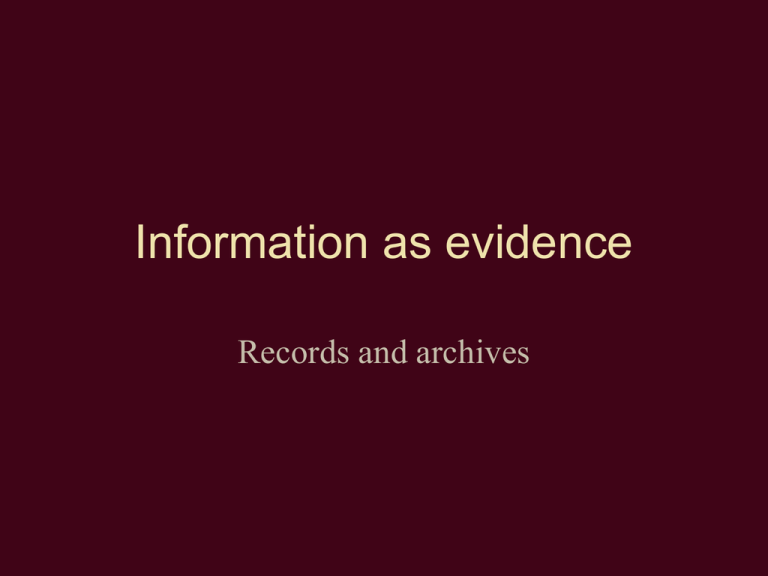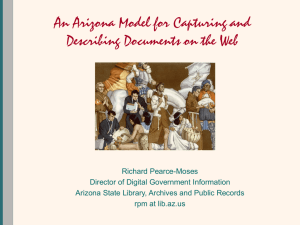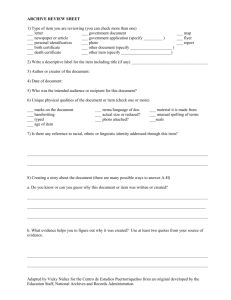Information as evidence Records and archives
advertisement

Information as evidence Records and archives The record Records are documentary traces of activities; they are produced in the context of carrying out activities and are kept as evidence of the activities. Records in this definition are most easily associated with the activities of governments, corporations, and other institutions. Slide 2 Evidence The principle upon which traditional archives rest is that records, preserved as the creating entity made use of them, are the best evidence of what the creating entity was doing. Inherent in this conception is the importance of context; the relationships between records, as established via the creator’s activities, are as much evidence as record contents. Slide 3 Evidentiary principles: respect des fonds Respect des fonds involves keeping the records of a single creator together. The fonds encompasses all the records produced by a creator. Slide 4 Evidentiary principles: provenance The principle of provenance mandates that records from one creator are not mixed with another, and that records should be arranged as the creator arranged them (original order). Slide 5 The basis of “modern” archives McNeil examines the basis for archival concepts of evidence. The notion of universal cognitive competence, as epitomized by Locke, indicates that any rational person reviewing a sufficient body of evidence will arrive at the same conclusion. If we don’t agree, either we don’t have enough evidence or one of us is wrong. Yay, the rule of law triumphs! Slide 6 Reliability and authenticity A reliable record is “capable of standing for the facts that it attests.” An authentic record “is what it claims to be.” In bureaucratic practice, a reliable record: • Is created by reliable people and processes. • Adheres to standards of completeness. Slide 7 Postmodernity and archives In “modern” thinking, reliable, authentic records accurately reflect “what really happened.” In postmodern thinking, records can only partially reflect “what really happened.” Slide 8 The mutable nature of records in practice Based on recordkeeping associated with the Jamaican banking crisis of the 1990s, Victoria Lemieux contends that: it is not realistic to expect that even the best practices will ever result in the perfect preservation of some inviolate intended meaning in records, and that the records will ever be perfectly reliable and impartial evidence of either the “facts” of a transaction or intended meaning. There are simply too many diverse mediations affecting recordmaking and record-keeping over space and time in complex organizations...” Slide 9 The mutable nature of records in practice According to Lemieux, there is no single “record” illuminating the truth. She suggests that the important question becomes not “What is a record?” but “how does this particular individual or group perceive and understand a record?” Slide 10


